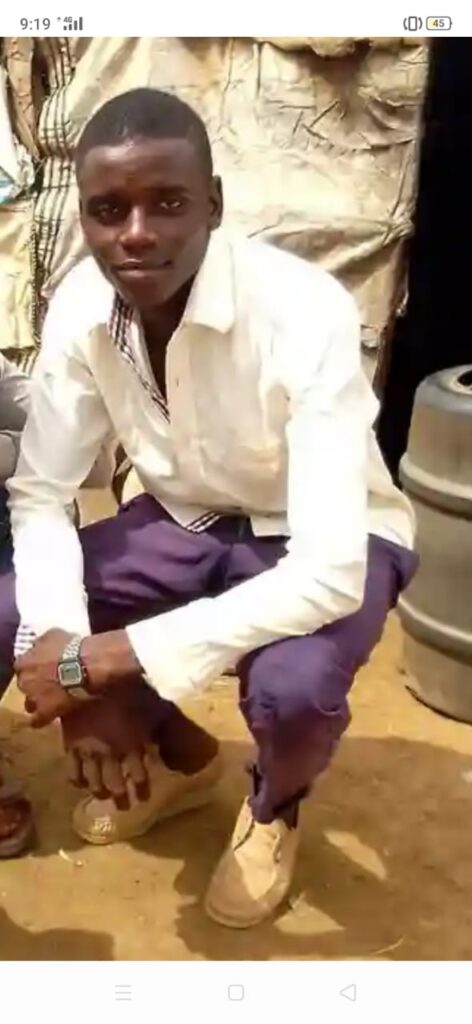BY SHABAN OMAR
A student at Mwamdudu, a remote village in Kwale County has appealed for help to pursue his higher education.
The student Athman Sada Mbawa expressed concern that his life goals may be thwarted due to a lack of funds to attend university.
Mbawa was called to Egerton University for his Bachelor of Science and Education and wanted to specialize in physics and Mathematics.
He achieved a B plain in his KCSE exams and aspires to become a high school teacher.
However, he is currently uncertain about his future, as his parents cannot afford the required funds.
He needs to raise at least Sh2, 078,400 for his first year and is expected to report by Monday, August 19.
“I am stranded. My classmates have already reported, but I am still unsure where I will find the fees,” he said.
Mbawa said he lives only with his mum who is unemployed and has no means to raise the money.
The 24-year-old said life at home is also not good as they are living in acute poverty.
He expressed his dream of lifting his family out of poverty and becoming a beacon of hope.
“The situation at home is difficult, and I want to study hard so I can provide my family with a better life,” he said.
Mbawa said he would appreciate any little assistance to help him get the desired education.
He said he is committed to working hard and transforming not only his own life but also his entire community.
Mbaya said he values education and its significance in socioeconomic stability.
Mbawa emphasized his belief in the importance of education for achieving socioeconomic stability.
He said that he previously received sponsorship for his secondary education from the neighboring Taita-Taveta County, but it expired upon his graduation.
Mbawa is now appealing to Kwale leaders and other partners to intervene and help prevent his future from falling apart.
“Governor and other leaders, if you see this video, please assist me. I have run out of options,” he said.
Mbawa is just one of many students facing similar challenges across the country.
The president William Ruto regime’s new higher education funding model has thrown many parents in the country who depended on county funding into total confusion.
Unlike previously where counties could fully fund university students like Kwale County, the new funding model requires students strictly to apply for government sponsorship.
On May 3, 2023, President William Ruto launched a new higher education funding model called the Variable Scholarship and Loan Funding (VSLF).
The model offers financial assistance to students pursuing higher education in universities and Technical and Vocational Education and Training (TVET) institutions.
The support is provided through government scholarships, loans, and student household contributions.
Students must apply individually for the loans and scholarships, with applications assessed using the Means Testing Instrument (MTI).
The MTI determines the student’s level of financial need to ensure they receive adequate support. Based on this, students are categorized as vulnerable, extremely needy, needy, or less needy.
According to Kwale county government education ministry, based on the new university financing model by the national government all students placed in public universities by KUCCPs are supposed to apply for the national government support through H.E.F and HELB.
Step one according to Kwale county education chief executive committee member Mishi Mwakaole students must apply for the national government scholarship and apply for the HELB loan.
“Once a student gets a report on the national government allocation from H.E.F and HELD that is when they can apply for county bursary and attach allocation report as well,” she told Coast Times Digital.
The ward bursary committee, she said will then recommend award of bursary based on the remaining fee balance.
She said that parents across the Kwale county 20 wards have been informed about the new financing model and asked locals to adhere to the same.
Kwale county locals had been used to full university sponsorship without applying for other support but President William Ruto administration has brought new dimensions in the education system.
The model has however been challenged in court by Kenya human rights commission, Boaz Waruku, Elimu Bora Working Group and the Student Caucus arguing that no scientific method determines a student’s level of neediness, raising concerns that students requiring scholarships and loans might not be appropriately classified for awards.
They also add that distribution of funds lacks transparency with details such as loan terms, interest rates, repayment conditions, and the process for appealing declined scholarship requests are not disclosed.
Additional information by Alloys Musyoka


